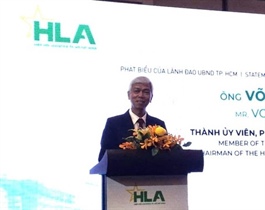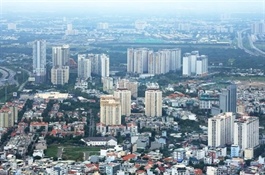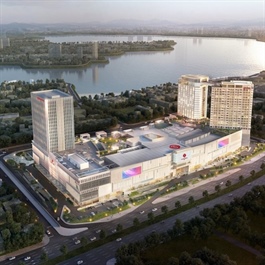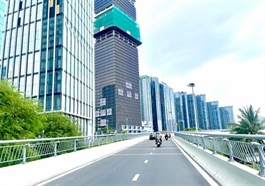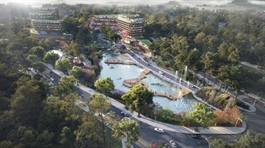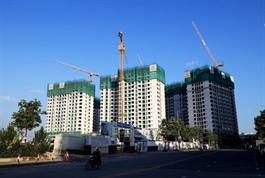Ho Chi Minh City revamps land status
Ho Chi Minh City revamps land status
Real estate investors in Ho Chi Minh City are now no longer able to subdivide land plots for sale in projects for individuals to build their own houses.

Ho Chi Minh City People’s Committee in late October identified areas, covering the districts of Binh Chanh, Nha Be, Hoc Mon, Cu Chi, and Can Gio, to transfer land use rights that already have technical infrastructure for organisations and individuals to build houses.
Accordingly, investors of real estate projects and housing construction projects throughout Ho Chi Minh City are not allowed to transfer land use rights with technical infrastructure in projects to who build houses. Project owners must build complete houses for sale instead of buying land, dividing plots, and selling land as before.
The decision is expected to have significance in creating healthy markets and ensuring synchronous project investment and construction.
Dinh Minh Tuan, director of Batdongsan.com.vn in the southern region, said that the supply of subdivided land in Ho Chi Minh City was already limited, and the new regulations would further reduce supply and cause prices to rise. The increase is forecast to be about 15-20 per cent, Tuan predicted.
“When the price level of land and residential properties is pushed up, along with the fact that Ho Chi Minh City has just applied a new land price framework, it will have a double impact on the market, affecting the cost of site clearance for infrastructure public investment projects,” Tuan said.
The new regulation may not be practical when the market has just gone through a difficult period, he added. “Ho Chi Minh City can execute this ban in some highly urbanised areas in central business districts. In remote and sparsely populated areas, it should not be implemented immediately,” Tuan said.
Sharing concerns about price increases, Vo Hong Thang, deputy general director of DKRA Group, said that the current southern land market had low liquidity, so unlikely to see so-called land fever.
“Regulations banning the division of plots for sale throughout the city aim to unify state management of housing and strengthen the responsibility of investors of projects, ensuring investment in synchronous construction of technical infrastructure and social infrastructure,” Thang said.
“Moreover, the new ban will also help avoid people building without permission or act against other architectural management regulations. The Department of Construction believes that it is necessary to ban subdivision and sale of plots throughout the entire area.”
Hoang Minh, a private real estate consultant in the Thu Duc area, said banning land subdivision helped the city solve many shortcomings, including avoiding haphazard construction and shredding planning.
“Subdivided land is mainly for investors to buy and resell for making profit and very few real buyers. Therefore, subdivided land is not used regularly, and can be left unused for long term and causing waste of resources,” Minh said.
However, the Ho Chi Minh City Real Estate Association (HoREA) has submitted a document requesting the Ho Chi Minh City People’s Committee to consider and amend the recent decision.
According to the HoREA, the five districts in question are rural areas where demand for buying, selling, and transferring land to build houses is still very high.
“Prohibiting the division of plots to sell plots for individuals to build their own houses at this time is inconsistent with current practice and regulations,” said chairman Le Hoang Chau.
The HoREA proposes to amend some of the regulations, detailing the identification of areas where land use rights can be transferred with technical infrastructure so that people can build their own houses in communes in foreign districts into the city.







